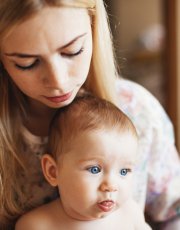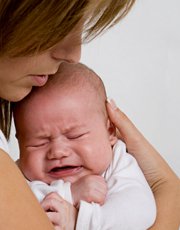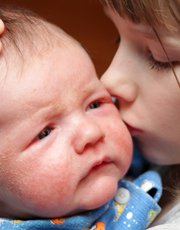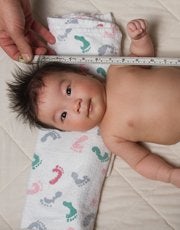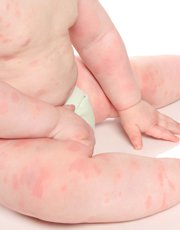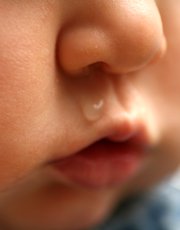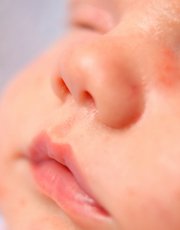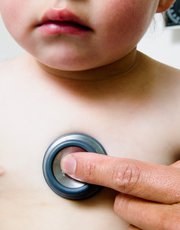SYMPTOM: BABY NOT EATING
What is a baby refusing to feed?
Refusal to feed refers to a situation where an infant, who is physically capable of feeding or eating, exhibits partial or full food refusal. Babies can develop an aversion to breastfeeding, bottle-feeding and/or food. Extreme food refusal and a lack of appetite, may lead to growth problems.
Why is my baby not eating?
As your baby develops, they will begin to establish a feeding pattern with you. If you or your baby do not easily recognise feeding cues this may lead to confusion and food refusal.
There may also be an underlying medical condition, which may distress the baby and lead to feeding refusal. A traumatic experience from eating a food that caused choking, reflux or vomiting could also cause your baby to refuse feeding.
Could it be Cows' Milk Allergy?
Refusal to feed may be a common symptom for babies with Cows’ Milk Allergy (CMA). Babies with CMA usually experience more than just one symptom and these symptoms can be very different from one another.
If your baby is refusing to feed, it may be CMA. You may have even noticed other symptoms (besides feed refusal), which may affect other parts of your baby’s body.
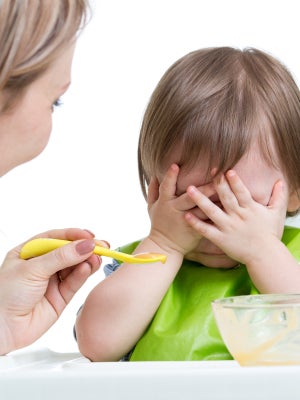
For a simple and easy way to understand the symptoms associated with CMA, you can use our symptom checklist or symptom diary to track symptoms.
This will allow you to select all the symptoms that your baby may have that can be cow’s milk-related. You can then discuss these with your doctor.
In any case, if you have any doubts or concerns about your baby’s health, you should always seek advice from a medical professional as soon as possible. The information on this website should not replace medical advice from a medical professional.



